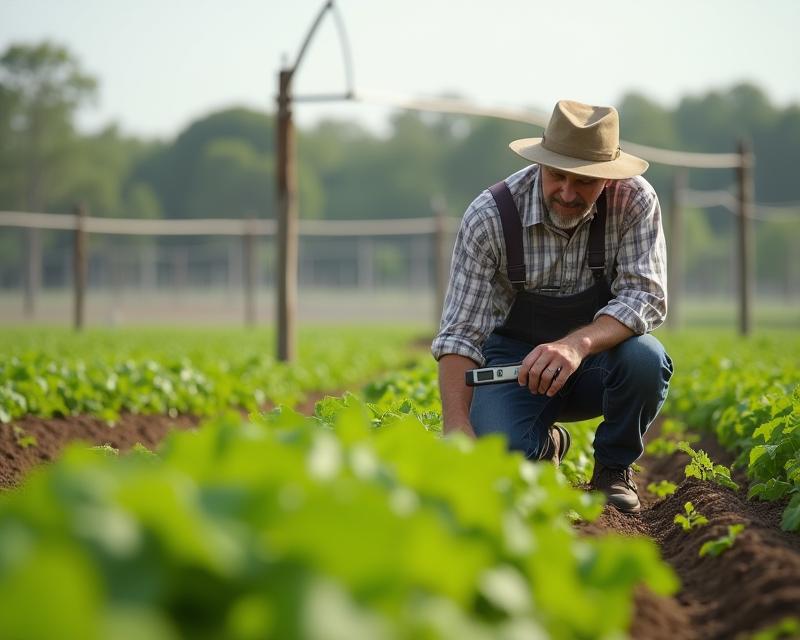Watering Your Crops: Is Enough Enough?
Publish in Sustainable Farming el 23/07/2025 16:39
Knowing if Your Water is Adequate for Agriculture
Water is the lifeblood of any farm, garden, or ranch. Without enough water, crops wither, livestock suffer, and yields plummet. But how do you *know* if you're providing enough? It's more than just a regular watering schedule; it’s about understanding your specific needs and the factors influencing water availability. Let's dive into some key indicators and practical steps to ensure your agricultural endeavors are well-hydrated.

Understanding Crop Water Needs
Different crops have drastically different water requirements. A thirsty cornfield will need far more water than a drought-tolerant sorghum patch. Researching the specific water needs of the crops you're growing is the first crucial step. You can find this information from your local agricultural extension office, university extension websites, or reputable online resources. Consider factors like the crop's growth stage – seedlings need less water than mature plants, and flowering/fruiting stages often demand more. Don't forget about the climate! Hot, dry weather will significantly increase water demand compared to cooler, wetter conditions.
Signs of Water Stress
Pay close attention to your plants! They often communicate their needs through visual cues. Here are some common signs of water stress:
- Wilting: This is the most obvious sign. Leaves droop and lose their turgor.
- Leaf Color Changes: Leaves may turn yellow, brown, or develop crispy edges.
- Stunted Growth: Plants may not grow as expected.
- Poor Fruit/Vegetable Development: Fruits and vegetables may be smaller than usual or have blemishes.
- Premature Leaf Drop: Plants may shed leaves early in an attempt to conserve water.
Regularly inspect your soil as well. If the soil is dry to the touch several inches below the surface, it's time to water. A soil moisture meter can be a valuable tool for accurate assessment.
Efficient Irrigation Practices
Simply applying water isn't always the most efficient approach. Consider these practices to maximize water usage:
- Drip Irrigation: Delivers water directly to the roots, minimizing water loss through evaporation.
- Soaker Hoses: Similar to drip irrigation, soaker hoses provide slow, targeted watering.
- Mulching: Applying a layer of organic mulch (straw, wood chips, etc.) helps retain soil moisture and suppress weeds.
- Watering Deeply and Less Frequently: Encourages deep root growth, making plants more resilient to drought.
- Monitor Rainfall: Adjust your irrigation schedule based on rainfall.
By understanding your crops' water needs, recognizing signs of water stress, and implementing efficient irrigation techniques, you can ensure a healthy and productive farm while conserving this precious resource. Water wisely, and your harvest will thank you!





